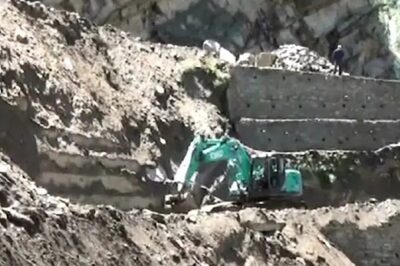
views
Tokyo: Tiny bats, no bigger than a car key, have been discovered roosting in carnivorous pitcher plants in Borneo -- with their droppings a vital nutrient for the plants.
"It's totally unexpected," said Ulmar Grafe, an associate professor at the Universiti Brunei Darussalam who led the study.
"There's a lot of animal-plant mutualisms, but this one is where the animal gives a nutrient to a plant. Usually it's the other way around."
The study, published in Biology Letters, began by looking at how the pitcher plant -- a vine growing up to 6-10 meters (20 ft to 33 ft) long with 25 cm (10 inch) pitchers - managed to gain the nitrogen it needed in the nutrient-poor peat swamps and heath forest on the island of Borneo.
Grafe's team was surprised to find that the roughly 4 gram (0.14 oz) Hardwicke's woolly bat (Kerivoula hardwickii) consistently chose the pitchers to sleep in during the day, despite a wealth of other possible roosts in the nearby forest.
Not only single bats but male and female pairs, and mother-juvenile pairs, can fit inside comfortably. At night, they fly out to hunt insects.
"The pitcher is a very nice roost for them," Grafe said. "It's dry in there and there's no buildup of blood-sucking ectoparasites that often accumulate in other cavities."
Theoretically, there is some danger to the bat should it fall into the digestive fluid at the bottom of the pitcher. But the plant has adaptations to prevent this, including an unusually low amount of fluid and a tapering pitcher.
Instead of getting nitrogen by consuming the bats, the plants get it from their feces.
"There's no reason why the bat couldn't fly outside. But they probably defecate in there because they usually do that when they roost," Grafe said.
The find is an example of why diversity matters, he added, noting that much of the forest in Borneo is under threat.
"There's so much extinction of animals and reduction of populations and removal that this again highlights how important it is to save every individual, every creature out there."




















Comments
0 comment